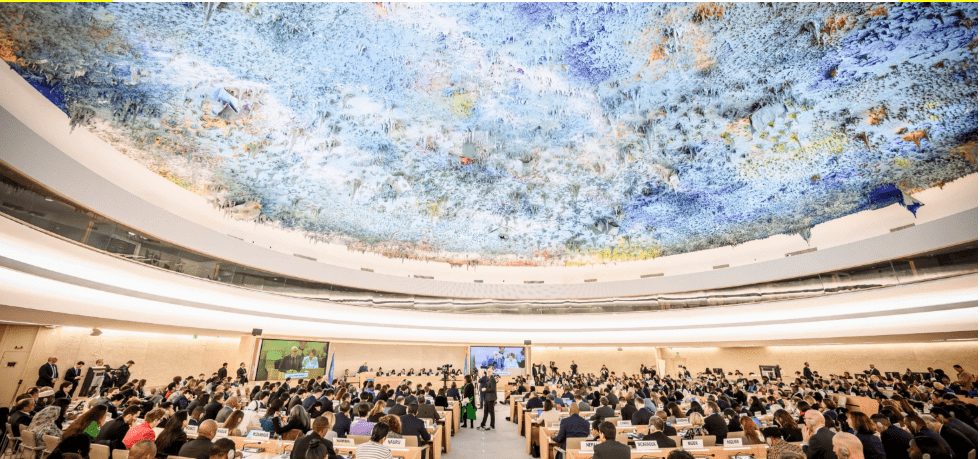
Pakistan’s second review under the International Covenant on Civil and Political Rights (ICCPR), to which the country is a state party, is scheduled for this week on 17 and 18 October at the UN Human Rights Committee in Geneva.
“Pakistan’s review comes at a crucial time for the country, as human rights violations and abuses remain rampant,” said Babu Ram Pant, Amnesty International’s Deputy Regional Director for South Asia.
“Two blasphemy-related extrajudicial executions by the police, crackdown on protests, enactment of the restrictive Peaceful Assembly and Public Order Act 2024, arbitrary detention and mass arrests of opposition workers and leaders, ban on the Pashtun Tahaffuz Movement, and harassment of human rights defenders like Mahrang Baloch – have all been reported in the duration of past month alone.
“The review presents an opportunity for the Pakistani government to take stock of the state of human rights in the country and implement concrete measures to address the human rights concerns raised during the review.”
Pakistan ratified the ICCPR in 2010 and the first review took place in 2017. After the review, the UN Human Rights Committee raised concerns regarding the failure to curb violence against women, the high incidents of enforced disappearances and extrajudicial killings, the trial of civilians in military courts, restrictions on the right to freedom of movement, overbroad powers to censor online content, the criminalization of defamation, limits on the registration of INGOs and their activities, and a delay in adopting a national refugee law.
Many of these concerns remain relevant today. In its submission to the UN Human Rights Committee, Amnesty International outlined a raft of ongoing human rights violations in the country. The organization especially highlighted the escalating blasphemy-related violence across the country and the use of vague and coercive blasphemy laws.
Amnesty International also noted that the use of military courts to try civilians denies people their right to a fair trial. The continued military detention of 85 participants of the 9 May 2023 protests and prisoners such as Idris Khattak remains a major concern.
Furthermore, the passage of new laws such as the Peaceful Assembly and Public Order Act, along with Pakistan’s decision to deport Afghan refugees in violation of the principle of non-refoulement, hangs over Pakistan’s upcoming review.






